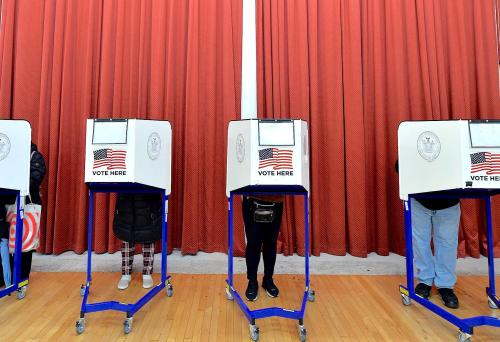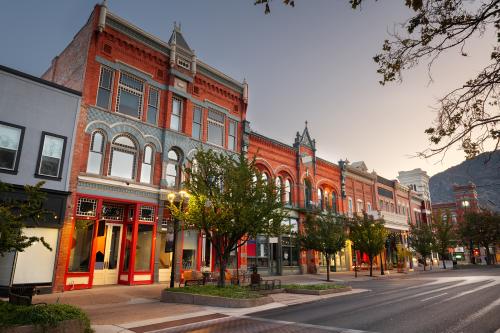Online Discussion with Sarah Binder; The Philadelphia Inquirer (11/10/06)
Q: What are the best political sites on the web that you you use and find value in?
rick, Philadelphia, PA 11/10/06
A: There are so many sites on the internet for political information that it is overwhelming at times. But my favorite cites are those that provide details on just what Congress is up to (CQ.com or Nationaljournal.com), those that provide analysis (newspaper sites most often), and I am a “tradesports” junky (tradesports.com). (Clarification, I don’t wager on politics, but I am fascinated by these political decision markets and what moves them!) Finally, there are a handful of blogs by political scientists that are oriented around trying to decipher electoral and political trends and numbers. My favorite is called “Political Arithmetik, where numbers and politics meet.”
http://politicalarithmetik.blogspot.com/
Q: I would appreciate some clarification for the designation of the word Liberal as it applies in 2006. I am old enough to remember when being a liberal was not a bad thing.
Sandy, Philadelphia,Pa 11/10/06
A:A nice question and a difficult one. We typically think of citizen ideologies as running from left to right, with liberals believing in a strong role for the federal government in solving problems and conservatives believing in a more limited role. Of course, many conservative Republicans in 2003 voted for the largest expansion of Medicare since its creation in 1965, making it tough to discern the meaning of the labels. And many Democrats do not want the government to be involved in matters of social choice like abortion. So there is no neat definition of these labels today.
Q:What were the final agreed upon numbers for voter turn out. That is, how many of the eligibe voters actually cast a vote on Teusday. Do we know, locally and nationally? The hype suggests a tital wave, looks like the parties just switched places in the House.
Anonymous 11/10/06
A:I have not seen final turnout numbers just yet, in part because of the large number of provisional ballots, absentee ballots, and early voting in some western states (for example, California, Washington). The rough estimate from the Center for the Study of the American Electorate at American University is about 40% turnout, with 21 states reporting an uptick in turnout. That said, your reference to “eligible” voters in an important one, as turnout data do not always have the right “denominator” of eligible voters. You might take a look at some work by one of my Brookings colleagues Michael McDonald, who is our turnout expert. His recent work is posted here: https://www.brookings.edu/views/op-ed/mcdonald/20061029.htm
The Brookings Institution is committed to quality, independence, and impact.
We are supported by a diverse array of funders. In line with our values and policies, each Brookings publication represents the sole views of its author(s).



Commentary
Political Gridlock? What Will Washington Do Now?
November 9, 2006